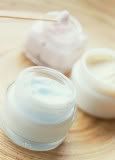Crash course on nine common skin-care ingredients
By learning to recognize the following ingredients, you’re guaranteed to ace the formula-deciphering test. Extra credit: You’ll look fabulous doing it!...The following nine can help nearly every skin issue, from acne to the first signs of aging. However, if they appear at the end of the ingredient list, they’re not concentrated enough to produce results.
Vitamin C: Also known as, Ascorbic acid, L-ascorbic, ascorbate, magnesium ascorbyl phosphate, ascorbyl palmitate.
Good for: All skin types, except very sensitive skin.
How it works: Vitamin C, neutralizes free radicals, which form when the skin is exposed to sun, pollution, cigarette smokes and other harmful elements. Free radicals damage collagen deep within the skin, causing wrinkles, blotches and inflammation.
Salicylic acid: Also known as, Beta hydroxyl acid (BHA).
Good for: Normal skin, oily skin.
How it works: Salicylic acid can penetrate the sebum that clogs pores, clearing blackheads. It is said, when used on a regular basis, it can decrease the frequency and severity of acne eruptions. Avoid it if you have dry or sensitive skin or an allergy to aspirin. Salicylic acid is in the same family as the pain reliever aspirin.
Ferulic acid: Also known as, 4-hydroxy-3-methoxycinnamic acid.
Good for: Dry skin, normal skin.
How it works: Usually combined with vitamins C and E, ferulic acid helps stabilize them. This doubles their power as sun-protective agent and boosts their ability to neutralize free radicals.
Retinol: Also known as, Retinoic acid, retinyl palmitate.
Good for: Normal skin, oily skin.
How it works: Retinol, the mild, over-the-counter form of retinoids, has been proven to stimulate the production of collagen and the formation of elastic tissue fiber. Over time this reduces winkles and helps prevent new ones. Since retinol can be irritating, avoid if you have sensitive skin, rosacea or eczema.
Idebenone: Also known as, Ubiquinone.
Good for: All skin types.
How it works: Idebenone is one of the strongest antioxidants contained in cosmetics, the anti-inflammatory properties help preserve collagen and elastic tissues, which give the skin support and resilience.
Hyaluronic acid: Also known as, Sodium hyaluronate
Good for: All skin types, especially dry skin.
How it works: hyaluronic acid attracts and seals water into the skin. When you hydrate the skin from outside, you minimize fine lines making them less noticeable. Avoid if you live in a low-humidity climate, because it will sit unabsorbed on the surface of your skin and may actually dehydrate it, drawing out moisture.
Green Tea: Also known as, Epigllocatechin gallate (EGCG).
Good for: All skin types.
How it works: Green tea is one of the most potent forms of photo-protection. It protects against sun damage, studies have shown that a products containing at least 5 percent green tea extract may help prevent skin cancer, when applied before sun exposure.
Niacinamide: Also known as, Nicotinamide.
Good for: Dry skin.
How it works: Niacinamide stimulates microcirculation and prevents water loss in the skin. Deep in the skin, it increases production of ceramides, which are the glue that holds the cells together and prevents water loss. So it helps to hydrate too. Translation: It gives skin a healthy, youthful look!.
Alpha lipoic acid: Also known as, Lipoic acid.
Good for: All skin type, except very sensitive skin.
How it works: Alpha lipoic acid helps with exfoliation and the stimulation of collagen, which may lead to a smoother appearance of the skin. Since it is a powerful exfoliator, avoid it if your skin is sensitive or prone to redness.
 |


